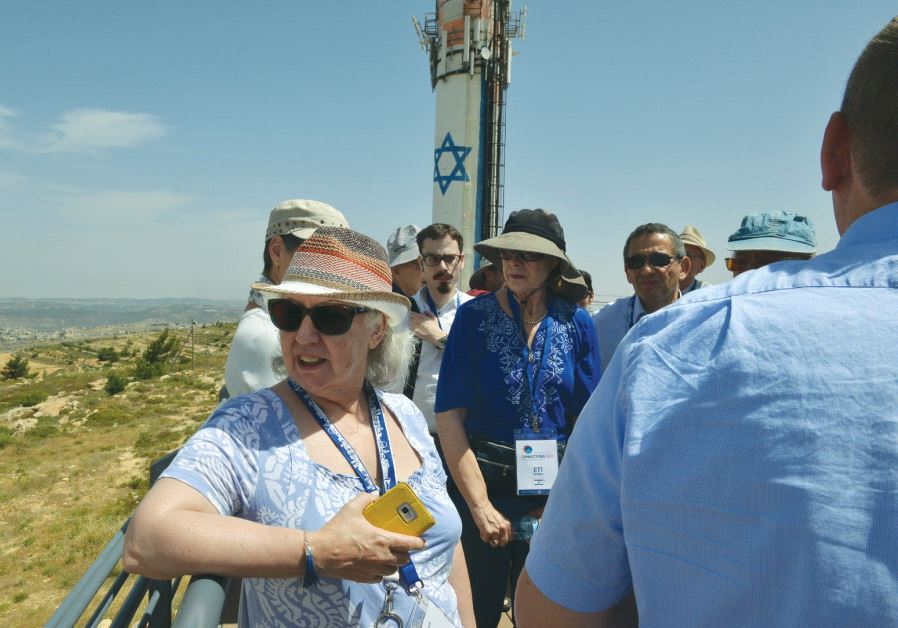WZO seeks to open minds of progressive Diaspora Jews in tour of Gush Etzion
Participants gain insight into settler psyche, but core views unchanged
 THE GROUP takes in the view from Neveh Daniel, a settlement in western Gush Etzion, on Thursday.(photo credit: YEHUDIT HOFMAN)
THE GROUP takes in the view from Neveh Daniel, a settlement in western Gush Etzion, on Thursday.(photo credit: YEHUDIT HOFMAN)